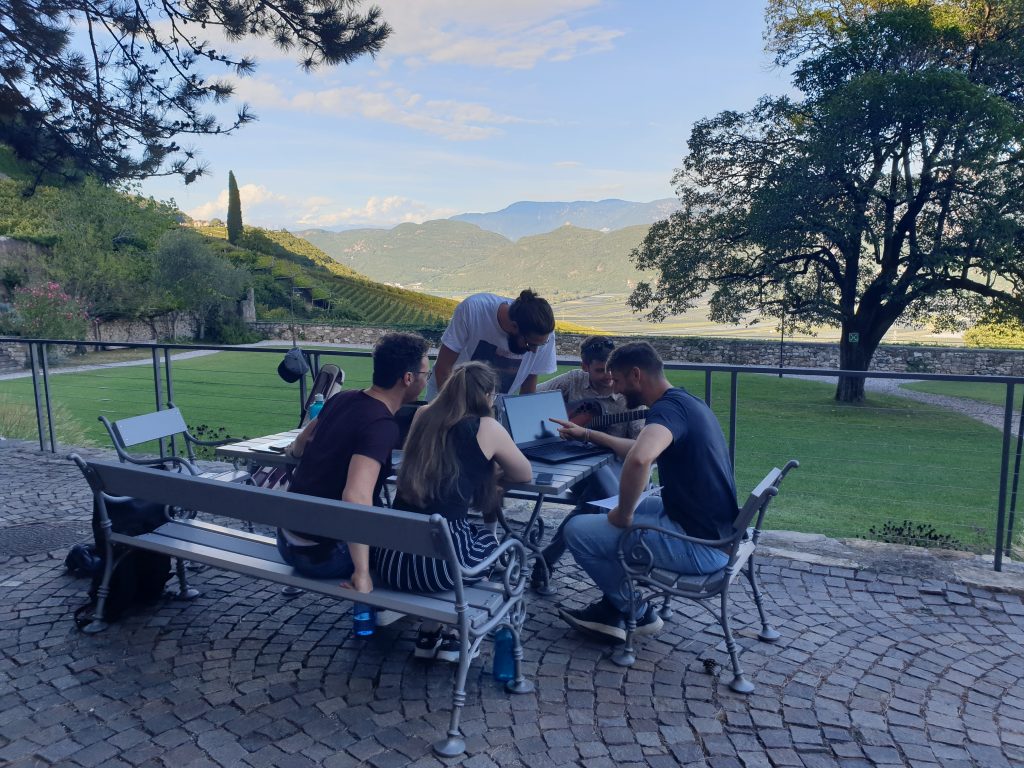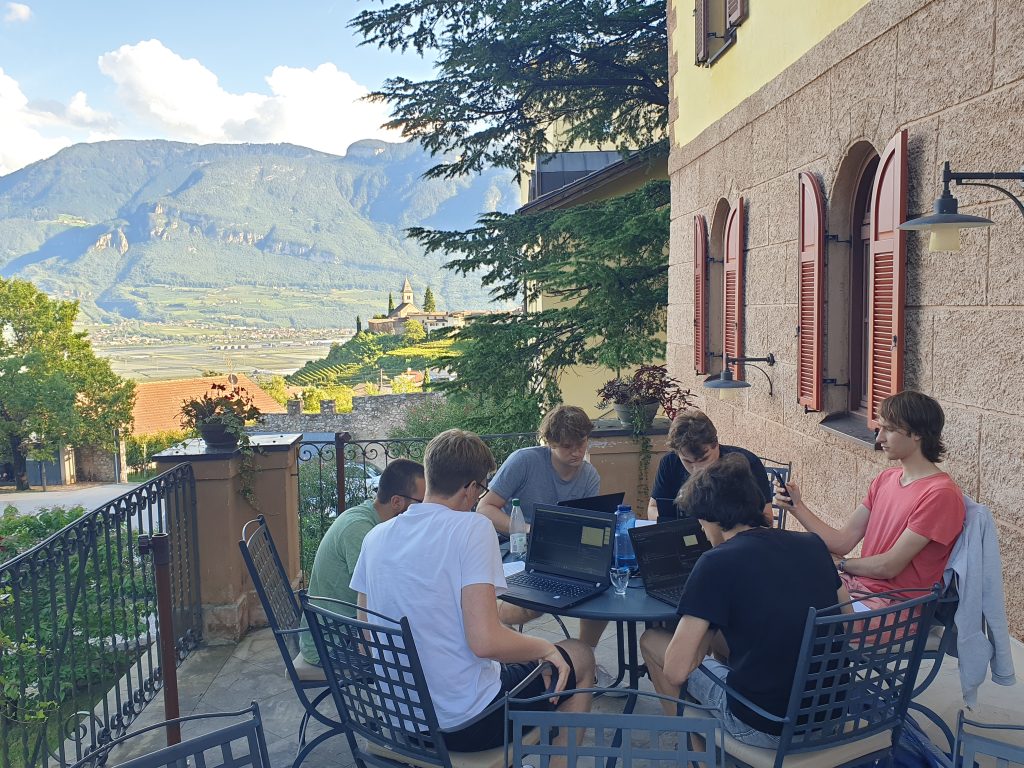Study Week 2023 – Geophysics
Study Week 2023 on Geophysics
with Dr. Ilaria Tabone (Friedrich-Alexander-University Erlangen-Nürnberg) and Dr. Sebastian Heimann (GFZ German Research Centre for Geosciences).
One really nice thing about studying physics is the vast range of related topics, which use similar methods and approaches. But there’s only so much that can be covered in the usual lectures. This is why each year, we have our study week, allowing us to delve into one specific topic.
This year’s study week took place in Tramin an der Weinstraße, South Tyrol, and was dedicated to Geophysics. During the week, we had multiple lectures on the topic. To deepen our understanding, the lectures were complemented by little projects, which we did in small groups. Both lecturers helped us along and answered any questions. On our last day, each group presented their work, which was a great opportunity for many insightful discussions.
Ilaria Tabone introduced us the physics of glaciers and how to simulate them using a Stokes model of a viscous fluid and a surface mass balance model. As a project, we had the opportunity to employ a simplified model of different glaciers, for example the Morteratsch glacier in Switzerland, to simulate the evolution with and without the influence of climate change. It was interesting to learn about the effect of glaciers on the climate change and sea level rise.
Sebastian Heimann talked about seismology. In his first lecture, he introduced the theory of elastic waves as a model for seismic activity. This model allows the application of various methods from optics, for example Snell’s Law, to study reflections of seismic waves in Earth’s mantle and core. Thereby, the inner structure of Earth can be probed using seismographic data. Furthermore, it is possible to track down the exact location of an earthquake using seismographic data from different stations. We also applied this method on actual data from multiple earthquakes.
Both lecturers also told us about their own research and gave us insights into their academic career.
Besides the scientific program, there also was time for hikes, board games or other activities.
The annual study week was again a great success. We had a nice introduction and interesting insights into the field of geophysics. Many thanks to both speakers, the amazing team at academy Schloss Rechtenthal and everyone involved in making this week possible.
Text: Alexander Kirchner
Fotos: Prof. Dr. Michael Schmiedeberg

